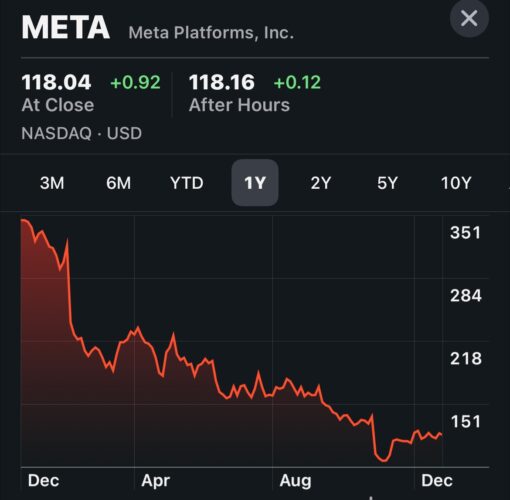
3 Lessons From This Year
As this tumultuous year winds to a close, I reflect on 3 valuable lessons that have impacted my mindset and perspective on life.
1. Ukraine War and Resilience
The Ukraine-Russian war – which Russia called as a ‘special military operation’ until Putin finally admitted it as a war on 22 December after 300 days! – has shown how important resilience is. While there are many perspectives about the war, I have no doubt that like me, many people are blown away by the resilience of the Ukrainian people. This individual resilience has collectively morphed into national defiance and unwavering pride, enabling ‘fight back’ to clinch impressive victories against a bigger bully.
Resilience is fighting back in the face of adversity or tragedy to overcome and recover. It is about taking control, bouncing back and scoring a personal victory. A polite way of sticking up the middle finger, I guess.

That was how my last 3-4 years of working life was. Stress and toxicity reigned in the office, driven by performance at all costs and all times, aided by technological tools. Despite detesting it, I ploughed on since everyone was suffering the same fate and putting up with it.
I now recognise that by failing to take action to improve the situation, I allowed myself to slip into endurance mode. While endurance is a virtue in itself – just ask any marathon runners – it is not for every situation. It was not until 2 personal incidents that prompted my decision and action to change course.
Now I’m not advocating quitting work as soon as demotivation sets in as work has its benefits. But it is important to consider appropriate options and work towards an improvement. So when I next find myself in a similar situation, I will keep in mind the resilience of the Ukrainian people, and take action to improve my predicament instead of just enduring. Both will get me through the finish line but the journey and outcome will be totally different.
A person’s level of resilience will determine who succeeds and who fails. That’s true in the cancer ward, it’s true in the Olympics, and it’s true in the boardroom.
~ Dean Becker, CEO Adaptive Learning Systems
2. Live Rich Die Poor
Bill Perkins’ book “Die With Zero” completely re-focused my approach to retirement and legacy planning. It has changed my mindset from wealth accumulation to greater life enjoyment and wealth distribution – while still alive.
Most of us are conditioned to save for retirement and then leave a legacy posthumously. The book suggests contrarily to start spending down our savings earlier to acquire meaningful experiences and aim to die with zero or very little left. For that is a life well-lived.

We all have 1 life, and the purpose is not to waste it. The idea that money is earned by exchanging life force, ie time, effort and ability means that to die rich is to waste this precious life force.
Bequeathing should also be part of retirement activities while alive so we can see and enjoy the goodness that our giving brings. Isn’t it more impactful to inherit during one’s 20’s – 30’s so one can pay off student loan, start a business or buy a home?
The book started my husband and I thinking about de-cumulating assets earlier, much like de-cluttering physical belongings. We plan to start off-loading some of our real estate portfolio which demands the most time and effort amongst our passive income streams. Although 1 of the best wealth building tools with its repeatability feature, real estate has nothing passive about it.
This will free us to focus on acquiring more memorable experiences while still able-bodied and sharp-minded. For all the money in the world will make little difference at later stage in life when deterioration of the body and mind set in.
3. Market Turmoil and Winning By Cutting Loss
2022 has shown that blue-chips and proven businesses are just as susceptible to free-fall of stock prices. My biggest investment lesson has been to win by cutting loss early, to stem bigger losses. Despite having a 15% stop-loss intent, I often fail to apply it due to denial and to avoid realising paper loss.

I clung on to losing stocks in the belief that a ‘good’ stock will recover…some day, 1 day, hopefully soon. Well, hope is not a strategy. And while it is true that overall stock markets always bounce back from their lows to scale new highs, individual stocks do not always follow this rule. Some become terminally anorexic due to change of business strategy, competitive landscape or bad management.
Instead of cutting losses when the stocks prices fell 15%, I bought more into 2 counters to ‘average down’, hoping to recoup my poor trades. Throwing good money after bad resulted in bigger losses. If I had kept to the 15% stop-loss principle, the maximum loss in any position would be capped at 15%. As it stands now, my biggest losing position is -36% and total portfolio is down 11% 🙁
Winning by not losing (further) will be the motto I apply to stop my emotions from sabotaging myself. Cutting loss is a useful principle not only for investment but also in life: ending a toxic relationship, letting go of past mistakes and moving on.
We can’t help being another year older, but we can definitely learn the lessons from this year to become wiser going into the next. What about you? What lessons have you learnt?

Happy holidays and to an enlightened year ahead!
Savvy Maverick
(Main image: Sunset at Playa Merendero, Marbella Spain. Image: Savvy Maverick)
Disclaimer: The views expressed here are drawn from my own experiences and do not constitute financial advice in any way whatsoever. Nothing published here constitutes an investment recommendation, nor should any data or content be relied upon for any investment activities. It is strongly recommended that independent and thorough research be undertaken before making any financial decisions, including consulting a qualified professional.
